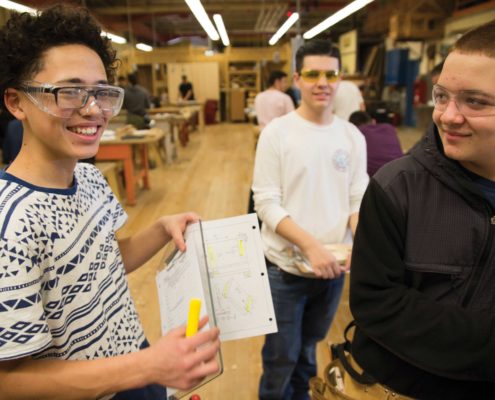
The Healing Hand: Modeling Catholic Medical Vocational-Technical Schooling
0 Comments
/
This study explores whether medical vocational-technical education could be a tool to help Boston-area Catholic schools address declining enrollment and also provide economically disadvantaged students with skills that are in high demand among employers.

Homeschooling: The Ultimate School Choice
This report recommends that states do more to acknowledge the…
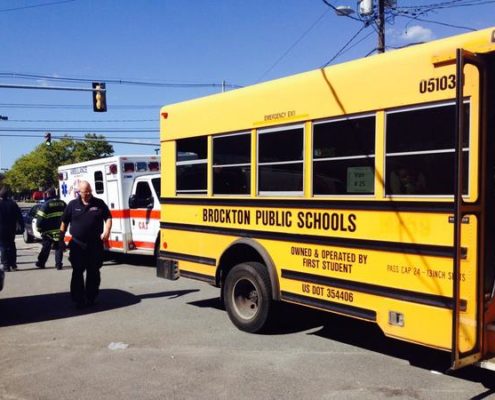
Best Practices in Massachusetts Charter Schools: What We Know Now
This report summarizes the research-based truth about Massachusetts charter public schools, focusing on the ideas that were most prominent in the charter school ballot initiative debate. The data that follow are taken from a series of papers published by Pioneer Institute over the course of 2016. This report illustrates that Massachusetts charter public schools do not drain resources from district schools, they outperform the school districts from which their students come, and have attrition rates that are lower than or equal to those districts.

Attrition, Dropout and Student Mobility in District and Charter Schools: A Demographic Report
This paper uses publicly available DESE data to explore student attrition and other forms of student movement, such as dropouts, within district and charter schools. It is not a direct response to the now dated MTA report, but it does explore the validity of the claim that Massachusetts charter public schools have higher attrition than their district counterparts because these schools “select out” or “push out” weaker students in an effort to produce higher test scores.

Laboratories of Democracy: How States Get Excellent K–12 U.S. History Standards
The purpose of this paper is to take a closer look at the states that have designed strong history standards and note what has made them exceptional so other states might do the same. They include Alabama, California, Indiana, Massachusetts, New York, and South Carolina.

What Goes Up Must Come Down: New, Lower K-12 Science Standards for Massachusetts
This paper, the second of a two-part analysis, finds that Massachusetts’ Next Generation Science Standards adopted last spring by the state Board of Elementary and Secondary Education (BESE) fall short. The authors conclude they are unclear, unnecessarily complicated, miss important content, and fail to make important connections.

Advanced Placement Opportunities and Success in Boston Charter and District Schools: A Demographic Report
This report shows that Boston charter public school students are more likely than their counterparts in non-exam Boston Public Schools (BPS) to take Advanced Placement (AP) courses and tests, and Boston charters have also done a better job of helping traditionally underserved students pass AP tests.

Massachusetts Charter Public Schools Best Practices in Expansion and Replication
This paper considers what the limited expansion of some charter organizations in the Commonwealth has looked like so far, and explores the different legal and policy conditions that enable large charter and educational management organizations to flourish. It does so with an eye to understanding whether Massachusetts might benefit from policy changes that encourage the expansion of operators already in the state and provide incentives for successful outside operators to bring their programs to the Commonwealth. Recommendations include providing pathways for new, innovative providers to enter the state.

Massachusetts Charter Public Schools English Language Learners: Demographic and Achievement Trends
The following paper describes how charter schools in Massachusetts and especially in Boston enroll and serve English language learners. Another report in this series provides similar information about students with disabilities. This paper provides enrollment, attrition, and achievement data for English language learners in charter schools across the Commonwealth, with a concentration on Boston and Gateway Cities such as Lawrence.

Massachusetts Charter Public Schools: Students with Special Educational Needs: Demographic and Achievement Trends
The report finds that charters (especially in Boston) are enrolling an increasing number of special needs students - and those students are performing well compared to their district counterparts. The report also explores attrition rates and facilities funding.

After the Fall: Catholic Education Beyond the Common Core
The workforce-preparation focus of the K-12 English and math standards known as Common Core puts them at odds with Catholic education, and the standards should not be adopted by parochial schools. In “After the Fall: Catholic Education Beyond the Common Core,” authors Anthony Esolen, Dan Guernsey, Jane Robbins, and Kevin Ryan argue that the national standards’ unrelenting focus on skills that transfer directly to the modern work world conflicts with Catholic schools’ academic, spiritual, and moral mission.

Massachusetts Charter Public Schools: Best Practices from the Phoenix Charter Academies
Phoenix Academies, a network of three Massachusetts public schools, is using strategies such as “relentless support” to help at-risk students not only graduate from high school, but also succeed in college.

Expanding Educational Opportunities: Best Practices in U.S. Summer Enrichment Programs
This report is the second of a three-part Pioneer Institute series of studies on summer enrichment programs with a particular focus on opportunities for disadvantaged students. It highlights best practices in the field by profiling a range of summer programs. The authors urge summer enrichment programs to partner with entities that help place disadvantaged children in educational programs to help the schools and non-profits recruit students. They also urge programs run by schools to use academic-year faculty.

Massachusetts Charter Public Schools: Best Practices in Character Education
This report explores two high performing Massachusetts charter public schools—Abby Kelley Foster Charter School in Worcester, MA and the Brooke Charter School Network of Boston, MA—and how they approach character education. This study is part of a series of papers from Pioneer highlighting best practices in the charter sector.

The Inevitability of Character Education
This report explores the reasons for a lack of focus on character education in U.S. public schools. The author also proposes six activities that appear to be effective in bringing about positive difference in the lives of children.

Survey of Summer Enrichment Programs at Independent and Parochial Schools in Massachusetts
A survey of more than 70 Massachusetts private and parochial schools found that most offer academically-oriented summer programs, which have been found to prevent summer learning loss and can help close the achievement gap among student groups. The survey is the first of a three-part study that will yield a comprehensive guide to summer enrichment programs in the commonwealth.

Assessing Charter School Funding in 2016
This study contends that Massachusetts’ charter school funding formula should maintain the shared responsibility of state and local governments to fund education, but improvements could address a number of weaknesses and allow money to more easily follow students.
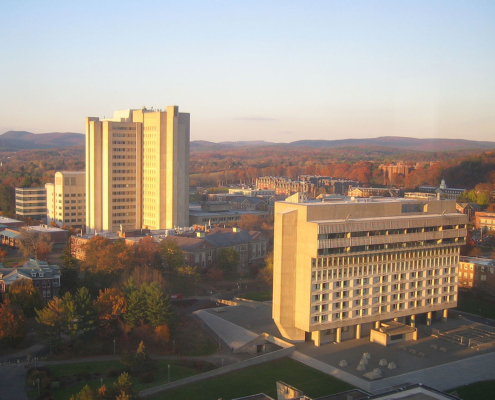
UMass At A Crossroads
This paper is the first in Pioneer Institute’s UMass at a Crossroads series. In this study, Pioneer focuses on UMass’ significant growth in two areas, academic competitiveness and student enrollment, compared to other New England state universities, MA private universities, national private universities and national public universities. Pioneer raises the question of whether the continued expansion of UMass, based largely on increased enrollment of out-of-state students, is in the best interest of the commonwealth.
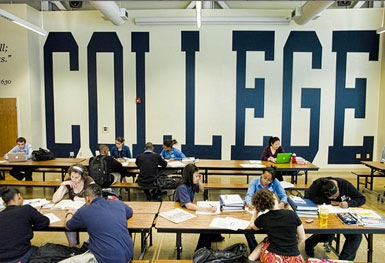
Massachusetts Charter Public Schools: Best Practices Using Data to Improve Student Achievement in Holyoke
This report profiles the Holyoke Community Charter School (HCCS) in Holyoke, Mass. and the SABIS-designed systems that the school uses; systems that relate to curriculum, assessments, and the gathering of school level data pertaining to both. Drawing upon school- and state-generated data and interviews with HCCS students and faculty, this cases study describes how SABIS’s integrated approach to curriculum, assessment, and data-driven instruction engages students in a way that encourages them to take ownership of their own learning—something rarely seen in schools, especially at the K-8 level.
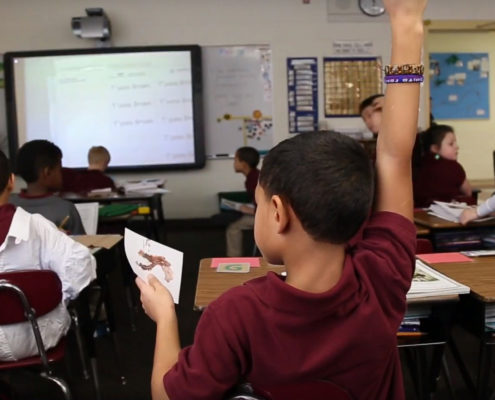
Massachusetts Charter Public Schools: Best Practices Using Data to Improve Student Achievement in Springfield
The following paper profiles SABIS International Charter School (SICS) in Springfield and the SABIS-designed systems that the school uses; systems that relate to curriculum, assessments, and the gathering of school level data pertaining to both. SICS has been named a “top high school” by US News & World Report for five years running. Drawing upon school- and state-generated data, this cases study describes how SABIS’s integrated approach to curriculum, assessment, and data-driven instruction engages students in a way that encourages them to take ownership of their own learning.

Fordham Institute’s Pretend Research
The Thomas B. Fordham Institute has released a report, Evaluating the Content and Quality of Next Generation Assessments, ostensibly an evaluative comparison of four testing programs, the Common Core-derived SBAC and PARCC, ACT’s Aspire, and the Commonwealth of Massachusetts’ MCAS. The latest Fordham Institute Common Core apologia is not so much research as a caricature of it.

Massachusetts Charter Public Schools Best Practices in Curricular Innovation
This paper highlights two Massachusetts charter schools that offer curricular opportunities rarely available in other public schools in Massachusetts. Both of these schools enable students to achieve exceptional results in comparison to their peers in traditional district schools. Understanding some of the important innovations that charter schools offer to students and families can productively inform the current policy debate.

Massachusetts Charter Public Schools Best Practices: Serving English Language Learners
This report draws on interviews with school leaders and classroom observations in three Massachusetts charter school organizations to describe some of the successful strategies used to enable large ELL populations to achieve at high levels. The report applauds holding charter schools accountable for recruiting and retaining ELLs and other special populations, but warns against “punishing” schools that succeed in helping students shift out of a category based on academic achievement.

Setting Academic Performance Standards MCAS vs PARCC
Author and career testing expert Dr. Richard Phelps writes that adopting PARCC would result in a one-half year drop in performance expectations for 4th grade math and reading, and 8th grade math, in Massachusetts. He also argues that critics of MCAS misunderstand its intended purpose, and explains why this is problematic.

Advanced Civics for U.S. History Teachers: Professional Development Models Focusing On The Founding Documents
A resurgence of interest in civic virtue and a new emphasis on teaching civics in our schools is needed in our country. Teachers need opportunities beyond college to learn the intricacies of government and how to teach it. Pioneer Institute reached out to four professional development programs with nationally known reputations to learn more about their offerings.

How PARCC’s False Rigor Stunts the Academic Growth of all Students
This report concludes that revising and updating MCAS would result in lower costs and more rigorous assessments that would provide better information about student performance than adopting PARCC.

Expanding Access to Vocational-Technical Education in Massachusetts
This paper explores why vocational education has become such a popular option in Massachusetts, and why 52 Bay State cities and towns do not have access to either district or regional career vocational technical programs. It also examines funding for vocational- technical education. While vocational-technical education is more expensive than traditional high school, it would cost the state less than ½% of the FY16 education budget to provide 5,000 more CVTE placements in Massachusetts.

A Critical Review of the Massachusetts Next Generation Science and Technology/Engineering Standards
Massachusetts’ draft pre-K through introductory high school Science and Technology / Engineering standards contain such startling gaps in science that they should be withdrawn from consideration.

Proving the Viability of a School Choice Voucher
In “Proving the Viability of a School Choice Voucher,” author Scott Haller surveyed 107 religiously affiliated private schools across Massachusetts including Catholic, Jewish, Adventist, Baptist, Islamic and Episcopal schools. The report found that an annual voucher of between $6,000 and $8,000 would be sufficient to provide low-income students access to an education in the majority of religiously affiliated Massachusetts K-12 schools.

Modeling Urban Scholarship Vouchers in Massachusetts
Vouchers have the potential to do many things - improve family satisfaction, reduce racial isolation, and strengthen educational outcomes for both the recipients and the children remaining in public schools - all at little or no net cost to taxpayers. The program described in this paper could provide 10,000 students from low-income families with the choices that other families already possess.
